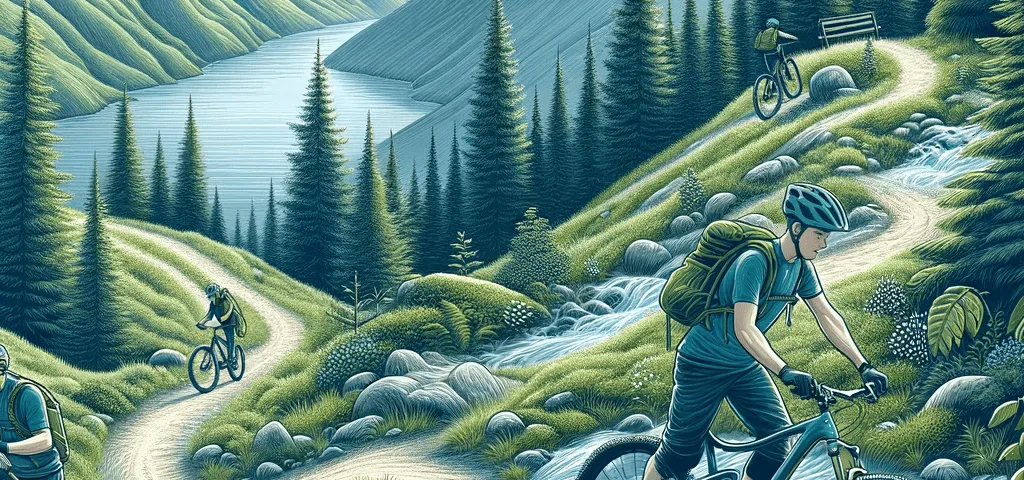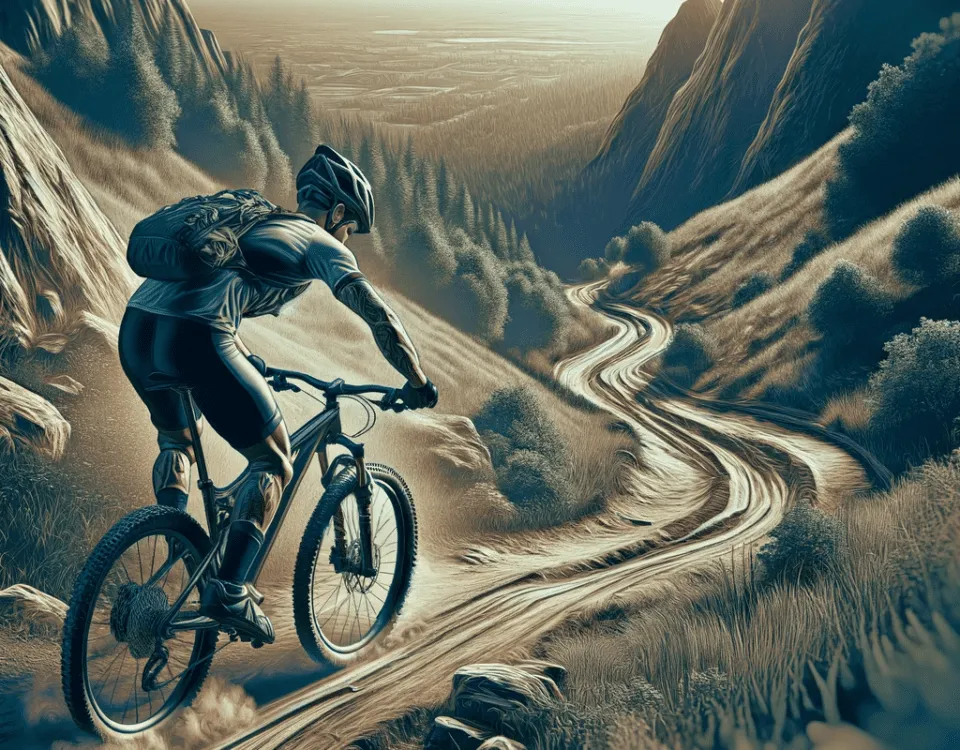
Selecting the right mountain bike gloves
January 18, 2024
Choosing the Right Mountain Bike Helmet
January 19, 2024Being Eco Friendly While Biking
In the realm of outdoor sports, off-road cycling stands out as a thrilling pursuit that immerses enthusiasts in nature’s beauty. However, with the increasing popularity of mountain biking, it’s crucial to adopt eco-friendly practices to minimize our footprint on these natural landscapes. This article delves into sustainable mountain biking practices and the importance of protecting nature while trail cycling.
The Essence of Responsible Trail Cycling: Understanding the Impact: Off-road cycling, while exhilarating, can inadvertently lead to soil erosion, vegetation damage, and disturbances to wildlife. Awareness of these impacts is the first step toward responsible cycling. Cyclists must recognize their duty to preserve the natural trails that provide them with joy and adventure.
Riding on Designated Trails: One of the fundamental principles of eco-friendly mountain biking is sticking to established trails. Veering off designated paths can harm fragile ecosystems and contribute to habitat destruction. Respecting trail boundaries not only protects the environment but also ensures the sustainability of the trail for future enjoyment.
Eco-Conscious Gear Choices & Sustainable Equipment: The choice of gear can significantly influence your ecological footprint. Opting for equipment from brands that prioritize sustainability, whether through materials used or manufacturing processes, is a step towards eco-conscious cycling. Additionally, maintaining and repairing your bike and gear extends their life, reducing waste and consumption.
Biodegradable Cleaning Products: Regular bike maintenance is essential, but it’s important to use biodegradable cleaning products. These products prevent harmful chemicals from contaminating the soil and water sources along the trails.
Minimizing Disturbance to Wildlife: Respect for Nature’s Inhabitants: Trails often run through habitats teeming with wildlife. It’s vital to minimize disturbance to these creatures. This means keeping noise levels down and maintaining a safe and respectful distance from wildlife. Avoiding trails during sensitive times, like breeding seasons, further reduces the impact on natural inhabitants.
Advocating and Educating: Community Engagement: Being an eco-friendly cyclist also involves advocacy and education. Joining local trail maintenance groups, participating in clean-up drives, and educating fellow bikers about sustainable practices play a significant role in fostering a community of environmentally conscious riders.
Trail Etiquette: Sharing trails with hikers, runners, and other bikers requires understanding and following trail etiquette. This includes yielding appropriately, controlling speed, and being courteous. Such behavior not only minimizes trail conflicts but also promotes a positive image of the mountain biking community.
Personal Responsibility and Mindfulness: Leave No Trace: Embrace the ‘Leave No Trace’ principles. This includes packing out all trash, minimizing trail alterations, and avoiding shortcuts. Every small action counts towards preserving the natural state of the trails.
Plan and Prepare: Proper planning before a ride can reduce environmental impact. This involves checking trail conditions and closures, being aware of weather forecasts, and ensuring your bike is in good condition to avoid trail damage.
The Way Forward: Sustainable Trail Development, Supporting Sustainable Trails & Advocacy for sustainable trail development is crucial. This involves supporting initiatives for trail building and maintenance that minimize ecological disturbance, promote erosion control, and protect wildlife habitats.
Conclusion
Eco-friendly off-road cycling is about striking a balance between our passion for the sport and our responsibility towards the environment. By adopting sustainable practices, choosing eco-conscious gear, respecting wildlife, and engaging in community advocacy, we can significantly minimize our impact on nature trails. It’s about leaving behind nothing but tire tracks and taking away nothing but memories. As we continue to pedal through the beauty of the natural world, let us commit to protecting and preserving it for generations of cyclists to come.




